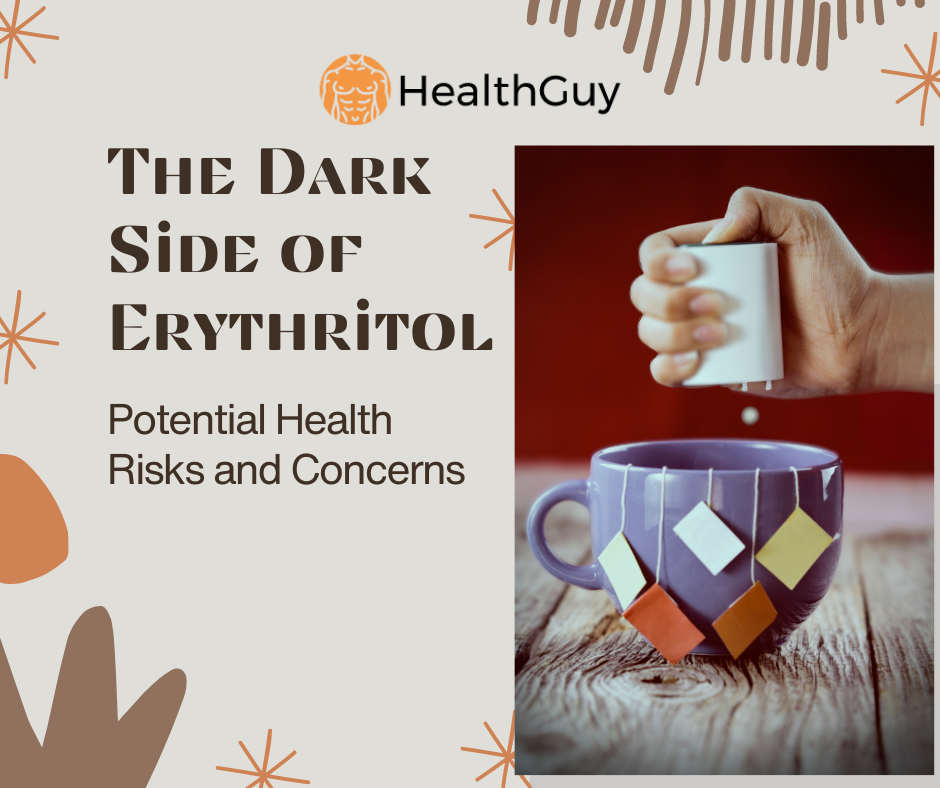
The Dark Side of Erythritol: Potential Health Risks and Concerns
Erythritol is a type of sugar alcohol that is commonly used as a sugar substitute in foods and beverages. It’s a zero-calorie sweetener that’s commonly found in sugar-free products like chewing gum, candy, and diet drinks. It has gained popularity in recent years due to its low-calorie content and ability to mimic sugar’s taste and texture without the negative health effects.
Erythritol is found naturally in some fruits and fermented foods, but it is most commonly produced through a process of fermentation using glucose. During this process, certain types of yeast or bacteria convert glucose into erythritol, which is then purified and used as a sweetener.
One of the main benefits of erythritol is its low-calorie content. Unlike regular sugar, which contains 4 calorlow-caloriem, erythritol contains only 0.2 calories per gram. This makes it an attractive option for people looking to reduce their calorie intake or maintain a healthy weight.
However, recent studies have linked erythritol to health risks such as heart attack, stroke, blood clotting, and even death.
So, what is erythritol, and how does it work?
Erythritol is a sugar substitute that’s made from fermented cornstarch. It’s about 70% as sweet as sugar and has fewer calories than other sugar alcohols. Unlike some other artificial sweeteners, erythritol is absorbed by the body but not metabolized, which means it doesn’t raise blood sugar or insulin levels. This is because it is not metabolized in the same way as regular sugar, and is instead absorbed into the bloodstream and excreted in the urine without being used for energy. This makes it a suitable sweetener for people with diabetes or those following a low-carbohydrate diet.
Another benefit of erythritol is its tooth-friendly properties. Unlike regular sugar, which can contribute to tooth decay and cavities, erythritol does not promote the growth of harmful bacteria in the mouth. In fact, some studies have even found that erythritol may help to reduce the risk of dental caries.
However, recent studies have suggested that erythritol may have some negative health effects.
- A recent study published in February 2023 in the Nature Medicine Journal has revealed a potential link between the consumption of erythritol and cardiovascular health risks, such as heart attacks, strokes, and blood clots.
- The Journal of the American Heart Association has also published a study that shows a positive correlation between high levels of erythritol consumption and an increased risk of heart disease, stroke, and blood clots when compared to individuals who do not consume the sweetener.
- Moreover, a study published in the International Journal of Food Sciences and Nutrition suggests that erythritol may be harmful to the cells lining the blood vessels, which can result in the development of cardiovascular disease.
Experts suggest that the risks associated with erythritol use may be due to its impact on gut bacteria. Erythritol may cause changes in the gut microbiome, which could lead to inflammation and other health problems.
So, should you stop using erythritol altogether?
Experts say that more research is needed to fully understand the risks associated with erythritol. However, they suggest using alternative sweeteners or natural sweeteners such as honey or maple syrup in moderation.
If you’re concerned about your health and the impact of erythritol on your body, it’s always a good idea to talk to your doctor or a registered dietitian. They can help you make informed decisions about your diet and sweetener choices.
In conclusion, while erythritol may seem like a healthy alternative to sugar, recent studies have raised concerns about its potential health risks. It’s always a good idea to be mindful of the sweeteners you’re consuming and to use them in moderation.
